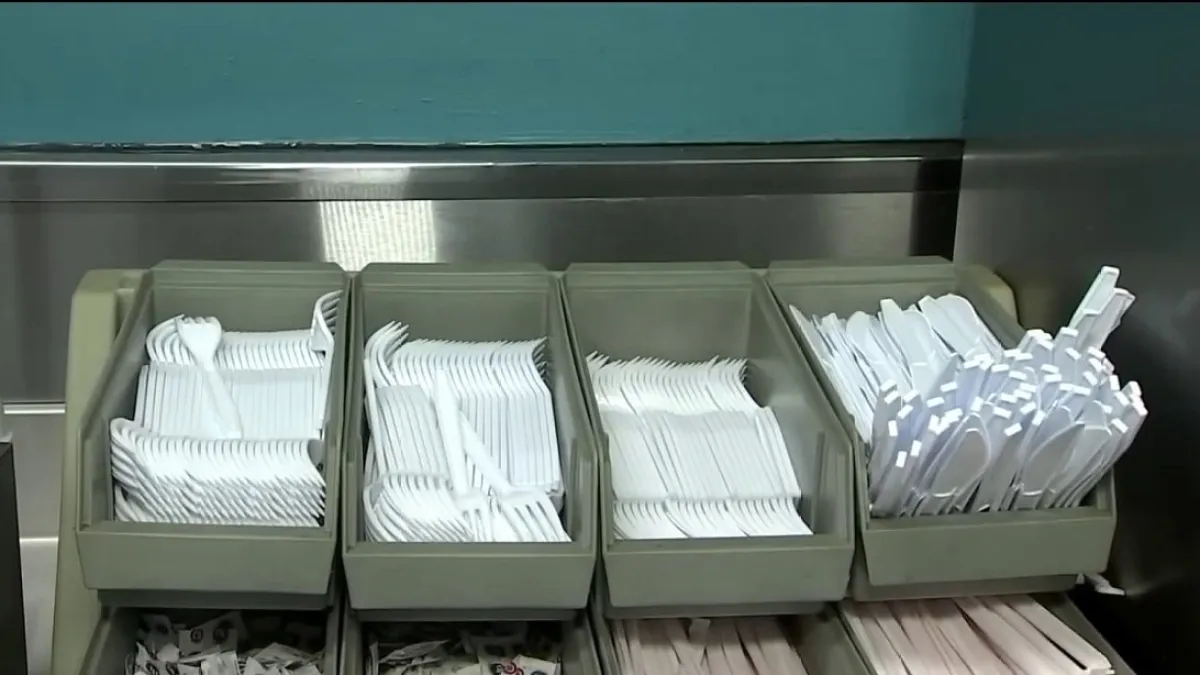Upper Merion Township is committed to environmental sustainability, implementing regulations that encourage businesses to reduce their reliance on single-use plastics. However, this transition has presented significant challenges for local businesses.

Transition to Reusable Materials
As of Monday, customers in Upper Merion Township are encountering fewer plastic utensils at local establishments. KOP Pizza, a restaurant in King of Prussia that opened in April 2023, is one such business adjusting to these changes. Over the past six months, the township’s two-phase environmental sustainability regulations have significantly altered the way the restaurant operates.
The latest phase of the single-use plastic ordinance, which bans the use of plastic utensils, has compelled KOP Pizza to switch to bamboo cutlery. According to Aleyah Frangiosa, a cashier at the restaurant, this transition is particularly challenging given that 80% of their orders are for carry-out. “We go through probably 100 plastic forks a day, just because of catering and everything. Companies don’t keep plastic silverware in their business, so we have to provide it,” she explained.
Impact on Local Businesses
The initial phase of the plan, implemented in January, eliminated single-use plastic bags, straws, and food service products. While this first step was manageable, the new regulation on utensils is causing concern among business owners. Frangiosa expressed worries about the financial impact on the restaurant, highlighting that bamboo cutlery is significantly more expensive than plastic alternatives. “It’s way more expensive,” she said. “It’s probably double or triple the price of plastic utensils. Also, customers have been complaining that the bamboo silverware leaves splinters.” Despite these challenges, not all customers are adversely affected by the change.
Mixed Reactions from the Community
Businesses that fail to comply with the new ordinance risk facing fines of up to $250 per violation. This enforcement raises questions about the fate of the remaining plastic products. “That’s a good question,” Frangiosa commented. “I think they will probably go in the trash, which I think is hypocritical. Defeating the purpose.”

The community’s response to the township’s environmental efforts is varied. While some residents and business owners are supportive of the initiative, others find the transition to be costly and inconvenient. As Upper Merion Township continues to push for sustainability, it remains to be seen how these regulations will impact the local economy and whether they will achieve their intended environmental benefits.
